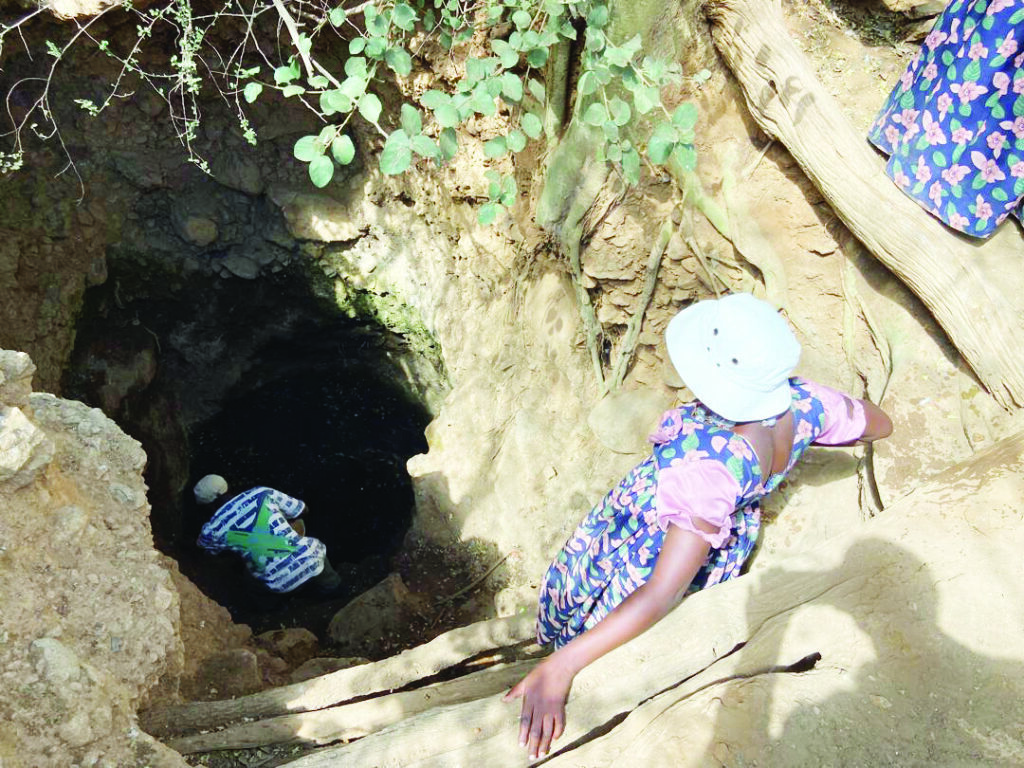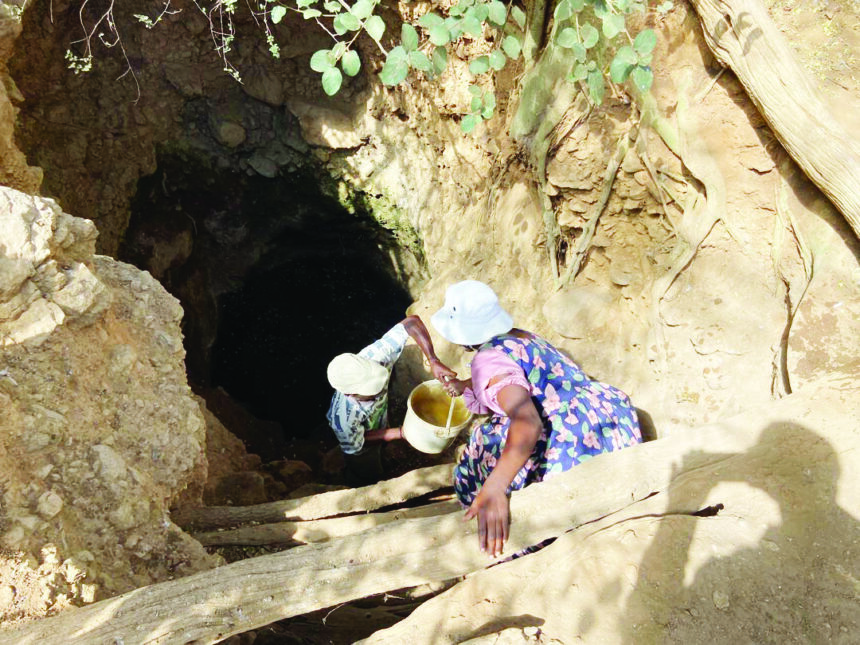Lahja Nashuuta
OPUWO – Served by a single borehole, over 2 000 residents of the community are compelled to fight for their turn at the borehole each morning.
The area sits on underground aquifers, but access to potable water for the residents of Kaoko-Otavi in the Opuwo Rural constituency remains a distant dream.
During school days, children must miss out on learning because of the long wait at the borehole, and adults are unable to be productive during their working hours because they must spend all their time looking for water.
One of the residents told New Era that at the borehole, sometimes it is about survival of the fittest.
“People don’t like to queue up; you will find them here pushing each other. We are facing a serious water shortage in this village,” she said on condition of anonymity.
Opuwo Rural constituency councillor Western Muharukua confirmed the acute water scarcity in the constituency for both human and animal consumption. He estimated that about 57 boreholes are needed to meet the water demand of the constituency with a population of 14 894.
He told New Era that about 52 villages are currently facing a lack of water, coupled with the severe drought.
“Our constituency is faced with a lack of potable water for both human consumption and livestock, which is a huge challenge. Several villages are without water. People must travel long distances to get to the nearest water point, while some people dig their own wells to get water, which is not even suitable for human consumption,” Muharukua stated.
He further said the water situation has made those with livestock to choose between grazing and giving them water.
“Where there is water, there is no grass, and where there is grass, there is no water. Hence, the shepherd has to spend one day grazing and the next day looking for water for the livestock,” he said.
Muharukua noted that although his office penned a couple of letters to the government requesting for more boreholes to be drilled in his constituency, the process of drilling boreholes has been very slow, and only seven boreholes have been drilled in the last five years.
“I informed our government at different engagements, and wrote many letters to the Ministry of Agriculture, Water and Forestry requesting five boreholes. I was informed that the government does not have money to assist in drilling boreholes in those areas. Hence, the community is left with no option but to drill their own wells to access underground water that is most suitable for human consumption,” he stressed.
The drought situation in the region is also persisting. Currently, only 7 794 people are getting assistance from the Office of the Prime Minister, which marks half of the constituency’s population. There are many other people in desperate need of food assistance as the entire constituency is affected by the drought, which the councillor observed has been affecting the inhabitants for the past seven years.
“The drought we are fighting today has been in existence for more than seven years, and has affected people who relied heavily on livestock to survive. Even if the region could receive good rain yesterday, it could not change the status quo because those are people who relied heavily on livestock ,and not crop production like other regions,” Muharukua said.
The councillor indicated while applauding the government for reaching out to most of the villages for drought aid assistance, that more needs to be done to ensure full coverage of the constituency.

Optimism
However, it is not all doom and gloom for the constituency.
The government’s Ohamaremba-Okanguati Pipeline project, which kicked off four years ago, has been completed, and will start supplying potable water to the Okanguati settlement households from the Ohamaremba aquifer, ranging 15 km from the location, Okanguati settlement administration officer Toivo Sakaria has confirmed.
He said the project is currently at a stage of installing the water tank, which is the final state, and the water will be distributed soon to the areas.
Information received from the settlement office showed that the whole project cost the government close to N$40 million, which was spent on the drilling of six boreholes at Ohamaremba village, and the installation of 160-millimetre polyvinyl chloride water pipelines for over 15 kilometres from that village to the Okanguati area.
The Okanguati settlements have been depending on water from hand-dug wells, while others are getting it from boreholes. Sakaria said with the available water, the settlement intends to start with the construction of absolution facilities for the public.
Responding to New Era’s questions, deputy water affairs’ executive director Elijah Ngurare said the Kunene region has more boreholes when compared to most regions.
“The Kunene Region has over 1 000 functional water points in comparison to regions like Otjozondjupa, Kavango West and Kavango East, [which] have less than 300 functional water points. The figures you are quoting sound a bit outside of what we know,” Ngurare said when asked about the situation in the Opuwo Rural constituency.



